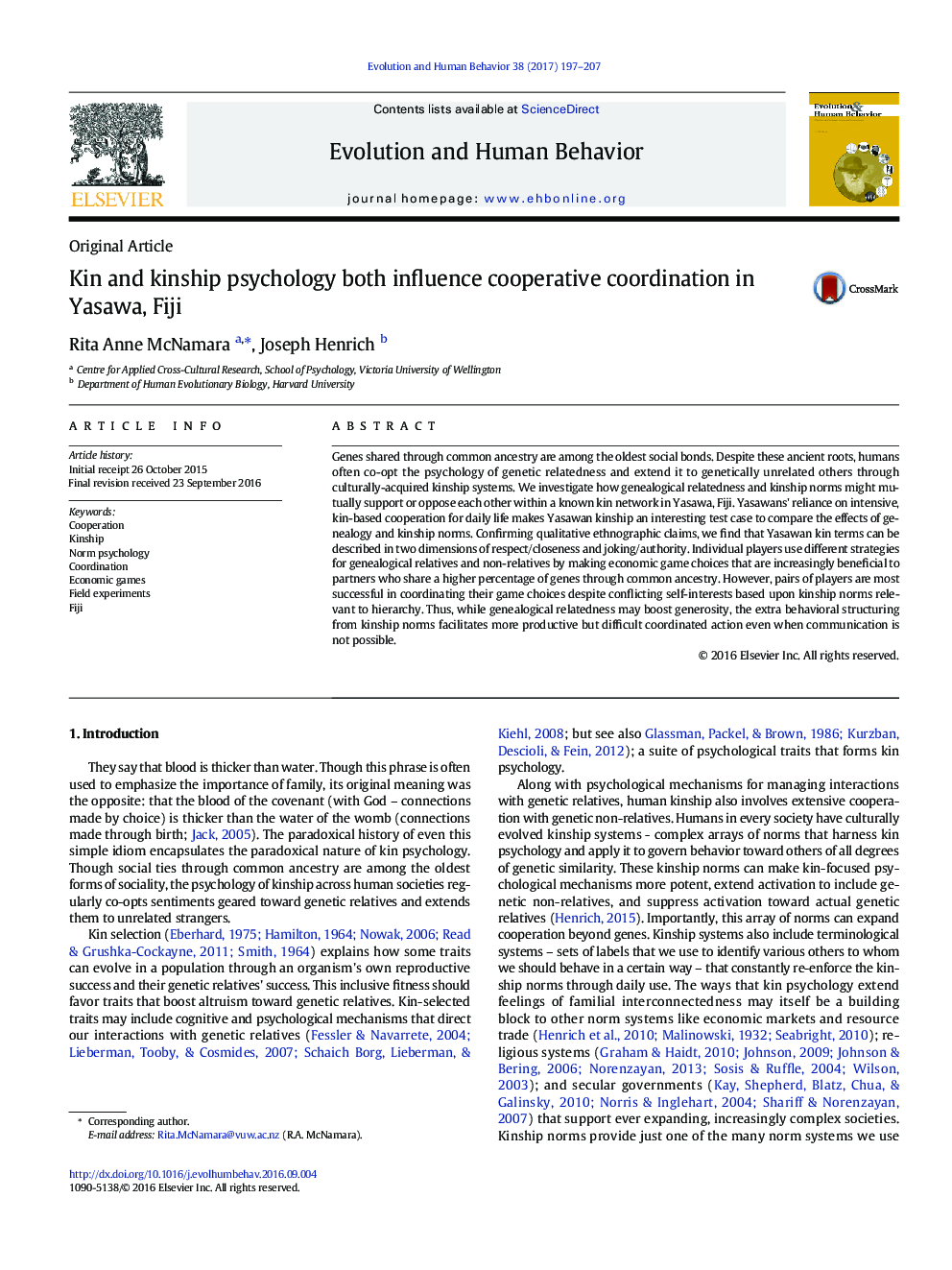| Article ID | Journal | Published Year | Pages | File Type |
|---|---|---|---|---|
| 5044870 | Evolution and Human Behavior | 2017 | 11 Pages |
Genes shared through common ancestry are among the oldest social bonds. Despite these ancient roots, humans often co-opt the psychology of genetic relatedness and extend it to genetically unrelated others through culturally-acquired kinship systems. We investigate how genealogical relatedness and kinship norms might mutually support or oppose each other within a known kin network in Yasawa, Fiji. Yasawans' reliance on intensive, kin-based cooperation for daily life makes Yasawan kinship an interesting test case to compare the effects of genealogy and kinship norms. Confirming qualitative ethnographic claims, we find that Yasawan kin terms can be described in two dimensions of respect/closeness and joking/authority. Individual players use different strategies for genealogical relatives and non-relatives by making economic game choices that are increasingly beneficial to partners who share a higher percentage of genes through common ancestry. However, pairs of players are most successful in coordinating their game choices despite conflicting self-interests based upon kinship norms relevant to hierarchy. Thus, while genealogical relatedness may boost generosity, the extra behavioral structuring from kinship norms facilitates more productive but difficult coordinated action even when communication is not possible.
